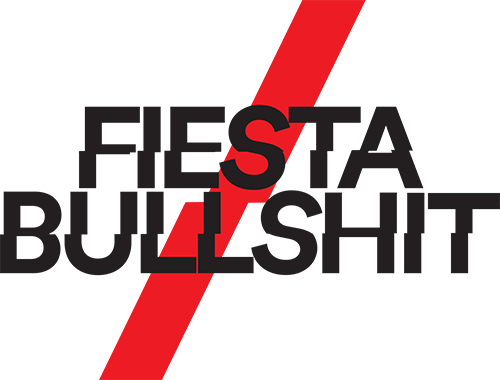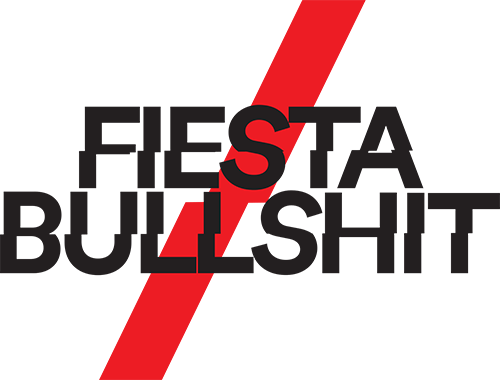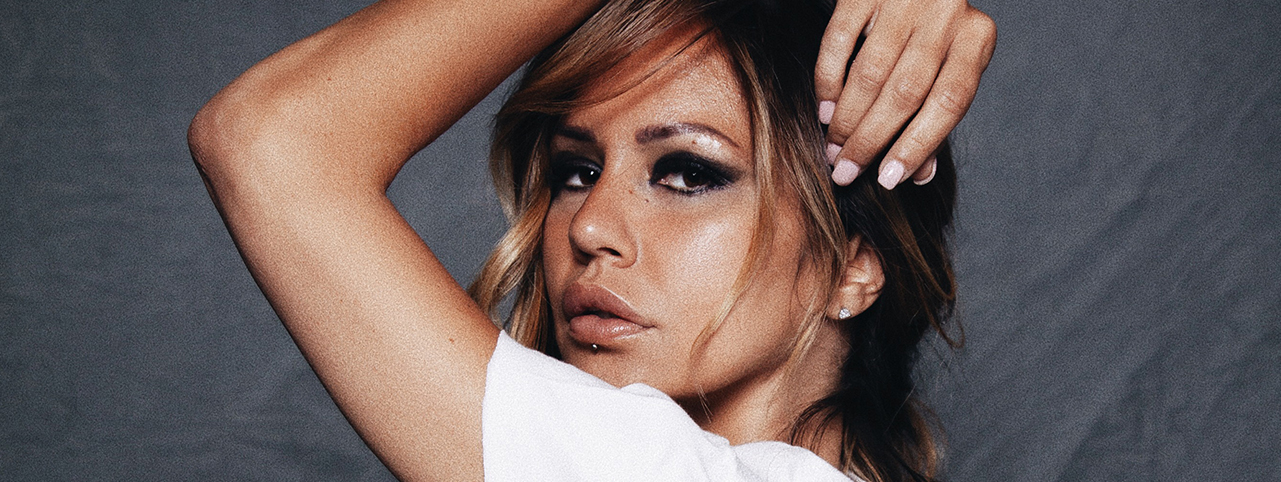DEBORAH DE LUCA: I WOULD LIKE IBIZA TO GO BACK BEING A TRENDY PLACE AND NOT AN ISLAND OF FASHION
FB: It is a pleasure for us to have the opportunity to talk to one of the leading artists on the international electronic music scene. During the upcoming month of July, you are going to be performing on our island, Ibiza, as well as in Germany, Chicago, Belgium, and London… How do you deal with a month with so many gigs? How do you organise yourself?
I am convinced that free time is a true luxury for people and—when it does not exist—as is my case during the summer season for example—I do not have much time for normal life. Of course, I feel really stressed and it is more and more difficult to recover; that is the price you pay for all this.

FB: Many artists admit that they do not look at the calendar beyond the next weekend so that they do not feel “overwhelmed”. What do you find most overwhelming about a schedule full of performances like this one?
Well, I thought that I was the only one who did not look at the whole calendar (smiles).
What I find hardest about this job (going back to the first question) and it may be the only thing, is the lack of time for myself. As well as how difficult it is to fit in everything that does not have much to do with my work. You miss things like doing a cooking course, going to the cinema with your friends or, in my personal case, taking a dance course.
FB: Moving on to your home city, Naples, one of Europe’s foremost “techno” cities. How did you get started in electronic music? Which artists were the first ones to influence you?
Naples is the birthplace of some of the most important techno artists in the world, but not many of us end up staying there. Personally, I could not live anywhere else. I love this city: it makes me feel alive and influences me every day with its colours, its streets, its rumours, and its peculiarities.
FB: And the first female DJ that you saw? Who was it and where?
DL: 2007, Riccione, Italy.I was a dancer at an important event at Easter. Scarlette Etienne was playing with all her beauty and simplicity. It attracted me and I spent the whole time watching her. I decided that I wanted to be like her.
FB: The role of women has changed a lot over those years up until now. In spite of all the advances, what do you think is still missing for there to be equality?
Women have changed in every sector and, in the world of music in particular, they have introduced a breath of fresh air and brought healthy competition in a world run by men.
FB: In an interview, you said that Nina Kraviz was the woman who had changed everything for the best, and for the good fortune of female DJs in this industry. Nowadays, there are many women playing in line-ups, clubs etc… Who do you see as the upcoming stars in the new generation?
I certainly see many women coming up; something that was almost impossible before owing to the fact that many doors were closed to us and also because few of us had the courage to start out on such a difficult, male-dominated path.
However, just like in any field, being a woman means being extra sensitive; it is not the key to success. Success is a mixture of various ingredients!
FB: Our magazine is called Fiesta&Bullshit: for you, what is a party nowadays?
I cannot wait for the moment to arrive when I will play at Carl Cox’s closing party in September in Ibiza, which is going to be at Privilege with Resistance.
FB: And the Bullshit? What is the bullshit in this industry?
Interesting question. For me, “Le cazzate” (all the nonsense, as we say in Italy) is what sometimes builds up behind you, behind your back, what holds an artist back on their path in certain environments and places, not because they do not have talent, but rather, because of other things that are not related to the world of music.
FB: This summer, we are going to be able to see you in Ibiza on more than one occasion; do you remember the first time that you visited the island? What year was it? And what did you do?
In 2004, I used to work as a dancer for various clubs on the island, among them Pacha and Space.
FB: And your first performance? Where was it and when?
In 2009, in a small bar close to the beach that no longer exists.
FB: Ibiza is an island that is greatly influenced by Italy with many Italians doing the season and living here. Many artists have managed to triumph here thanks to the Neapolitan and Italian public. What would you like your situation in Ibiza to be in two to three years’ time from now? Do you plan to set up your own party?
I would like Ibiza to go back to being a trendy place and not an island of fashion. One where you would be able to listen to music that is not heard during the rest of the year, and where there would be more new things. As regards my own party, at the moment, I am not fully convinced about doing it because of the lack of time and the high level of stress nowadays. What is more, because I prefer there to be parties organised by the big players in the sector who devote themselves fully to it. Nowadays, I have so little time that I cannot even think about myself.
FB: Of the parties that there are nowadays on the island, which one do you believe is doing it best?
I cannot tell you which the best party on the island is because, to be honest, I do not know all of them. All I can tell you is that I am very excited about being at the Resistance closing party.
FB: We have a section called In The Studio, in which artists tell us about their studios. We would like to ask you a particular question: If you sit on your chair in the studio, and you turn to the left, what do you see? Describe what is there as exactly as possible.
On my left I have one of the super white monitors that typify my studio and my tastes in general (I love white) and food. On my left side, there is also food. Sweets and chocolate: everything that is bad for the body, but good for the soul.
FB: We do not want to end this interview without talking about one of the big pieces of news in recent weeks: the closure of the club, Cocorico, a legendary club on the Italian scene. What is your opinion of this news?
You are asking the right person; I was the last artist to play at Cocorico on December 31. In fact, the media has used pictures from that night to talk about its closing. What can I say about this? Italy is the birthplace of many artists, but it is not a “good mother” or, as they say in Spain, a prophet is without honour in their own land. We do not have laws to defend club structure and politics has done nothing apart from screwing up the market with restrictions and by placing limits on opening hours. The closure of Cocorico is a failure for the entire world of music, and not only for Italy.
FB: What do you think about the scene in your country at the moment, both in terms of festivals as well as clubs? What improvements would you make?
Italy is a difficult country for the big clubs and festivals. We are born to be clubbers, we build great clubs, and we take our ideas abroad (Ibiza is proof of that). However, in our own country, it appears that we forget what we are capable of doing. At the moment, we have two great festivals, Kappa & Decibel, but we deserve many more.
FB: By the way, when you made the track called “Bad Morning”, what does it refer to?
Bad Morning actually talks about a really ugly morning. It was a very painful period in my personal life; at one of the high points of my career, somebody that I was in love with left me. The voice in the song is mine; it is an audio message that I recorded that morning, to be precise, on the morning of August 13, 2017. I was sitting on the floor in my house and I was talking to that person as if they were listening to me. A few weeks later, I put my words and my feelings to music so that I would not forget that moment and in order to not throw away all those emotions. I wrote them down just as I had come out with them. Nowadays, it is one of my most popular songs and there are people who have had themselves tattooed with my words:
“Ad ogni parola un colpo, ad ogni colpo io cadevo”.


